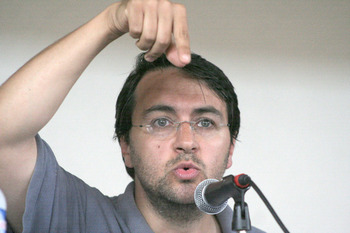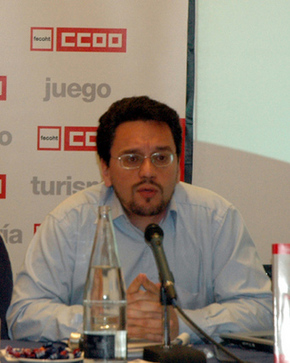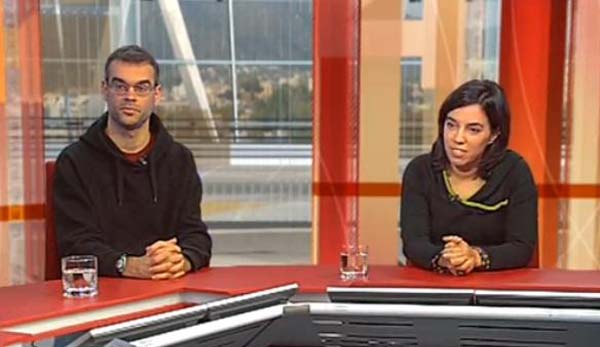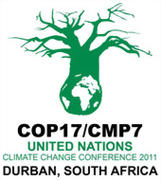Declaration of Social Movements Assembly Porto Alegre (RS), Brazil
31 January
 We, people of all continents, gathered in the Assembly of the Social Movements during the Thematic Social Forum Capitalist Crisis and Social and Environmental Justice, fight against the causes of a systemic crisis expressed as the economic, financial, political, food, and environmental crisis, that puts at risk the survival of humankind. Decolonizing oppressed peoples and confronting imperialism is the main challenge of the social movements of all over the world.
We, people of all continents, gathered in the Assembly of the Social Movements during the Thematic Social Forum Capitalist Crisis and Social and Environmental Justice, fight against the causes of a systemic crisis expressed as the economic, financial, political, food, and environmental crisis, that puts at risk the survival of humankind. Decolonizing oppressed peoples and confronting imperialism is the main challenge of the social movements of all over the world.


 It is two years since Daniel Bensaïd left us. To mark the occasion, the Fourth International secretariat organized a seminar on his thought and action. This was not a big public initiative but three days of work to look further into a series of questions tackled by the theoretician, philosopher and political militant that Daniel was.
It is two years since Daniel Bensaïd left us. To mark the occasion, the Fourth International secretariat organized a seminar on his thought and action. This was not a big public initiative but three days of work to look further into a series of questions tackled by the theoretician, philosopher and political militant that Daniel was.  Des voix s’élèvent – dans les rues de Hongrie et dans les institutions de l’UE – contre la Loi fondamentale que le gouvernement ultra-nationaliste d’Orban vient de mettre en vigueur.
Des voix s’élèvent – dans les rues de Hongrie et dans les institutions de l’UE – contre la Loi fondamentale que le gouvernement ultra-nationaliste d’Orban vient de mettre en vigueur. In Francia l'appello ha superato le 50 mila adesioni, in Belgio le associazioni Attac e Cadtm hanno fatto ricorso al Consiglio di Stato contro i 54 miliardi per salvare la banca Dexia, in Grecia c'è un comitato attivo da un anno. Incontriamoci anche in Italia
In Francia l'appello ha superato le 50 mila adesioni, in Belgio le associazioni Attac e Cadtm hanno fatto ricorso al Consiglio di Stato contro i 54 miliardi per salvare la banca Dexia, in Grecia c'è un comitato attivo da un anno. Incontriamoci anche in Italia  Cuando se ha incrementado la deuda pública, ¿por qué no se alude a los rescates y recapitalizaciones bancarias; subvenciones al capital explícitos –como las de la industria a la automoción– e implícitos –como el sistema tarifario que se aplica a las compañías eléctricas–, o las desgravaciones, deducciones y exenciones fiscales al capital –en impuestos, en las cotizaciones sociales, etc.–?
Cuando se ha incrementado la deuda pública, ¿por qué no se alude a los rescates y recapitalizaciones bancarias; subvenciones al capital explícitos –como las de la industria a la automoción– e implícitos –como el sistema tarifario que se aplica a las compañías eléctricas–, o las desgravaciones, deducciones y exenciones fiscales al capital –en impuestos, en las cotizaciones sociales, etc.–?  We will save the markets, not the climate. That is how we can summarize the outcome of the 17th Conference of Parties (COP17) to the United Nations Framework on Climate Change (UNFCC) which took place in Durban, South Africa between 28 November and 10 December 2011.
We will save the markets, not the climate. That is how we can summarize the outcome of the 17th Conference of Parties (COP17) to the United Nations Framework on Climate Change (UNFCC) which took place in Durban, South Africa between 28 November and 10 December 2011.  Hossam el-Hamalawy is a leading Egyptian journalist, photographer, and socialist activist from Cairo who maintains the widely followed blog
Hossam el-Hamalawy is a leading Egyptian journalist, photographer, and socialist activist from Cairo who maintains the widely followed blog  The recent debt crisis in the United States of America, as well as some new findings about the current economic problems in European countries, have revealed how the instrument of public debt is used for the benefit of banking and finance.
The recent debt crisis in the United States of America, as well as some new findings about the current economic problems in European countries, have revealed how the instrument of public debt is used for the benefit of banking and finance.  Gilbert Achcar
Gilbert Achcar The participants of the workshop on REDD and Biocultural Protocols organized by the Indigenous Peoples Biocultural Climate Change Assessment (IPCCA), from Ecuador, Panama, India, Nicaragua, Peru and Samoa met on 24 and 25 November 2011 in Durban, South Africa to share emergent findings and analyse how REDD is affecting our territories in order to respond through our assessments.
The participants of the workshop on REDD and Biocultural Protocols organized by the Indigenous Peoples Biocultural Climate Change Assessment (IPCCA), from Ecuador, Panama, India, Nicaragua, Peru and Samoa met on 24 and 25 November 2011 in Durban, South Africa to share emergent findings and analyse how REDD is affecting our territories in order to respond through our assessments.  Au risque de lasser le lecteur, rappelons les conditions à remplir pour que la hausse de la température de la Terre ne dépasse pas trop 2°C (entre 2 et 2, 4°C) :
Au risque de lasser le lecteur, rappelons les conditions à remplir pour que la hausse de la température de la Terre ne dépasse pas trop 2°C (entre 2 et 2, 4°C) :